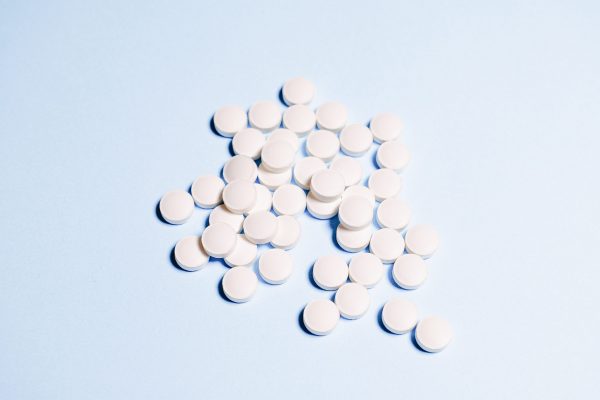Everyone wants to protect their heart health, and taking low-dose aspirin sounds like an inexpensive way to do that. After all, what harm could come from taking an over-the-counter pill that was originally formulated for children?
Well, the fact is that low-dose aspirin is so dangerous that, if a company attempted to bring it to market today, it would never make it. It just wouldn’t pass scrutiny.
That’s because the evidence of horrible side-effects with daily use is overwhelming.
At the top of the list are gastrointestinal bleeds. Especially in older individuals, aspirin increases risk of GI bleeding by 60%. And in many cases, these bleeds are so awful that patients may require blood transfusions.
Even worse, regular use can put older people at greater risk of intracranial hemorrhage or hemorrhagic stroke. When a blood vessel in your brain ruptures, blood leaks into the surrounding tissue and starts killing off all-important brain cells. And believe me. It’s not something you want to experience.
Now, we are also learning that low-dose aspirin is linked to an increased risk of anemia in older individuals.
Another Reason to Rethink Daily Aspirin Use
A July 2023 study published in the Annals of Internal Medicine discovered that low-dose aspirin increases the risk of anemia in older adults. More specifically, it reduces ferritin levels. Ferritin is directly related to the amount of iron stored in the body.
The reason for this loss, they explain, is most likely due to undetected blood loss.
That makes perfect sense, because with low-dose aspirin you are going lose a teaspoon or so of blood in the stomach. And when you lose blood you are going to lose iron. Then, eventually, you’re going to get anemia.
So it’s no surprise that the people in the study who took daily aspirin over three years had an 11.5% greater decline in ferritin than those who took the placebo.
The thing I find most distressing about all of this is that the U.S. Preventive Services Task Force (USPSTF) recommends against low dose aspirin for the primary prevention of cardiovascular disease in people once they’ve hit their 60’s.
But people take it anyway. With or without the recommendation of a healthcare provider, because they think it will help protect their heart.
The real kicker here is that it’s estimated about half of people 70 and older who take aspirin daily don’t even have heart disease to start with!
Natural Ways to Keep Your Blood Flowing Smoothly
The concept behind aspirin is simple. It works as a blood-thinner. The thinner the blood, the less chance blood clots might form that could block an artery and cause a heart attack.
Clearly, however, the risks of taking aspirin every day outweigh the benefits.
If you or your doctor has a concern about blood-clotting issues, there are there are other, less risky ways to keep your blood flowing smoothly through your veins – without the associated risks of bleeds and anemia.
I’ve got several favorites that are completely natural. You can even get them as part of your regular food intake.
For example, eating foods high in nitrates helps your body produce a gas called nitric oxide. This wonderful compound invigorates your blood vessels. It not only helps keep your blood platelets from clumping together, it also lowers your blood pressure and protects the delicate inner lining endothelium of your blood vessels.
Some of these foods include beetroot, kale, melon, celery and lettuce. However, the quickest and most effective way to produce more of this compound is with a nitric oxide enhancer.
Look for a plant-based formula that has beetroot juice as its main ingredient. These formulas vary from one manufacturer to another. So, make sure to choose the one that gives you what actually works at a fair price.
Garlic also contains compounds that help keep your blood cells from sticking together. This means improved blood flow and less chance of clotting. It also helps to prevent oxidation of LDL cholesterol, lowers blood pressure and protects against free radical damage.
So it’s definitely a heart-healthy food. I like aged garlic like Kyolic. It’s in a capsule you swallow, so you don’t need to stress about bad breath.
Ginger is another winner. In fact, it contains compounds that have even more anti-platelet activity than aspirin does. It is anti-inflammatory and works extremely well as a blood thinner in patients with heart disease and diabetes. You can chop it up yourself or buy it in a prepared jar that has already been sliced, minced or pickled.
Gingko Biloba is another favorite of mine. It interferes with a chemical in your body that causes blood platelets to cling to the walls of your blood vessels. Try a gingko biloba tea, or supplement with 120 to 240 mg daily.
Speaking of teas, organic green teas are rich in EGCG which also improves the functioning of your cardiovascular endothelial lining.
And don’t forget about heart-healthy fish oils. I keep a bottle on my kitchen table and take three to six grams a day in divided doses with my meals.
But stay away from the cheap ones! Their price reflects lack of quality in sourcing, quality management and manufacturing.
Keep in mind that when you naturally improve your blood flow, it will interact with any blood thinner you are already currently taking. Things like Coumadin, Heparin, Xarelto, Eliquis and any other newly named blood thinning drugs on the market will all increase bleeding risk.
So make sure to ask your doctor for a full list of foods that interact with these drugs to avoid serious bleeding issues.
SOURCES:
Mahady SE, Margolis KL, Chan A, Polekhina G, Woods RL, Wolfe R, Nelson MR, Lockery JE, Wood EM, Reid C, Ernst ME, Murray A, Thao L, McNeil JJ. Major GI bleeding in older persons using aspirin: incidence and risk factors in the ASPREE randomised controlled trial. Gut. 2021 Apr;70(4):717-724.
Cloud GC, Williamson JD, Thao LTP, Tran C, Eaton CB, Wolfe R, Nelson MR, Reid CM, Newman AB, Lockery J, Fitzgerald SM, Murray AM, Shah RC, Woods RL, Donnan GA, McNeil JJ. Low-Dose Aspirin and the Risk of Stroke and Intracerebral Bleeding in Healthy Older People: Secondary Analysis of a Randomized Clinical Trial. JAMA Netw Open. 2023 Jul 3;6(7):e2325803.
Guralnik J, Ershler W, Artz A, Lazo-Langner A, Walston J, Pahor M, Ferrucci L, Evans WJ. Unexplained anemia of aging: Etiology, health consequences, and diagnostic criteria. J Am Geriatr Soc. 2022 Mar;70(3):891-899.
McQuilten ZK, Thao LTP, Pasricha SR, Artz AS, Bailey M, Chan AT, Cohen HJ, Lockery JE, Murray AM, Nelson MR, Schneider HG, Wolfe R, Woods RL, Wood EM, McNeil JJ. Effect of Low-Dose Aspirin Versus Placebo on Incidence of Anemia in the Elderly : A Secondary Analysis of the Aspirin in Reducing Events in the Elderly Trial. Ann Intern Med. 2023 Jul;176(7):913-921.
Low-Dose Aspirin vs. Placebo on Incidence of Anemia in the Elderly. Summary. American College of Cardiology. June 2023.
Aspirin Use to Prevent Cardiovascular Disease: Preventive Medication. Final Recommendation Statement. U.S. Preventive Services Task Force. Apr 2022.
Aspirin use may be widespread despite new guidelines. National Institutes of Health. News Release. Aug 2019.
Webb AJ, Patel N, Loukogeorgakis S, Okorie M, Aboud Z, Misra S, Rashid R, Miall P, Deanfield J, Benjamin N, MacAllister R, Hobbs AJ, Ahluwalia A. Acute blood pressure lowering, vasoprotective, and antiplatelet properties of dietary nitrate via bioconversion to nitrite. Hypertension. 2008 Mar;51(3):784-90.
Makheja AN, Bailey JM. Antiplatelet constituents of garlic and onion. Agents Actions. 1990 Mar;29(3-4):360-3.
Bordia A, Verma SK, Srivastava KC. Effect of ginger (Zingiber officinale Rosc.) and fenugreek (Trigonella foenumgraecum L.) on blood lipids, blood sugar and platelet aggregation in patients with coronary artery disease. Prostaglandins Leukot Essent Fatty Acids. 1997 May;56(5):379-84.
Nurtjahja-Tjendraputra E, Ammit AJ, Roufogalis BD, Tran VH, Duke CC. Effective anti-platelet and COX-1 enzyme inhibitors from pungent constituents of ginger. Thromb Res. 2003;111(4-5):259-65.
Peng SY, Zhang FY, Ou-Yang XY, Liu Y, Wang WJ. Effect of ginkgolide B on the platelet-activating factor induced changes of chemotaxis and cytoskeleton of macrophages. Yao Xue Xue Bao. 2006;41:156-160




